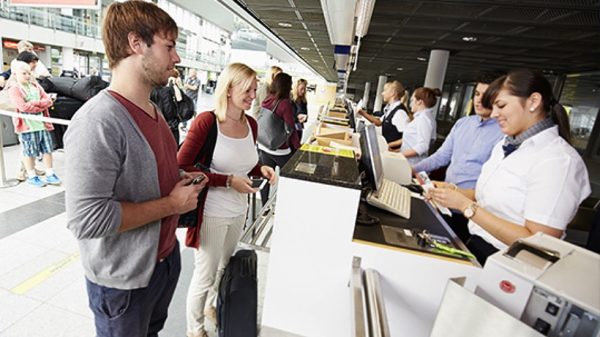Foreign business leaders in Thailand are urging the government for political stability and transparency as they roll out stimulus packages to boost the country’s economy. The people interviewed support the “digital wallet” scheme but emphasise the need for transparency in its implementation.
The new Srettha Thavisin government is planning to launch a 10,000 baht digital wallet stimulus for all Thais over 18 next year.
Vibeke Lyssand Leirvag, Chairwoman of the Joint Foreign Chamber of Commerce, stressed the importance of transparency in implementing the digital wallet scheme, which aims to enhance domestic purchasing power. However, concerns have been raised about the funding source for the scheme, which requires 560 billion baht.
The use of blockchain technology has also raised operational concerns given the instability of digital currencies that also use blockchain technology.
Labour shortages are another pressing issue, with foreign investors evaluating labour markets in Thailand, Vietnam and Malaysia.
And while the visa-free policy for tourists from China and Kazakhstan has been welcomed, there are calls to simplify visa rules for the MICE industry to support tourism.
Chinese and Kazakh citizens will be able to travel to Thailand visa-free for the next five months, bringing them in line with 68 other countries that already enjoy a visa-waiver for stays (mostly) of up to 30 days. Long term visas also remain controversial with a large selection of options available, but some business leaders believe the bar for qualification is raised too high in many of the categories.
The Joint Foreign Chamber of Commerce, representing numerous foreign chambers and companies, seeks expedited government digitalisation efforts, regulatory and education reforms. Climate change is also emphasised as a pivotal issue for Thailand’s competitiveness in the region, with calls for the government’s commitment to achieving net-zero greenhouse gas emissions.
The capital Bangkok, situated on the delta of the Chao Phraya Basin, is threatened with rising seawaters and increased flooding challenges as each year passes.
There is also attention on the increase in the minimum monthly salary to 25,000 baht per month for bachelor’s degree holders, with cautious implementation and communication with the private sector highlighted.
In contrast, one domestic bank, LH Bank, supports the minimum wage increase, seeing it as beneficial for the local economy. The bank’s CEO and President, Shih Jiing-Fuh, believes that reviving tourism and raising the minimum wage can alleviate household debt problems and contribute to a more equitable distribution of wealth.
Finally, diversifying the supply chain and welcoming foreign investment are considered essential for Thailand’s economic strategy. The country’s open culture and infrastructure projects are seen as attractive factors for foreign direct investment and regional influence.









